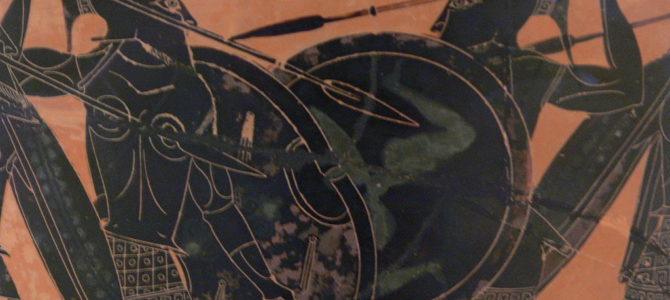In the first lecture of Hillsdale College’s course on the histories of Athens and Sparta, which you can follow along with me here, college President Larry Arnn explains why studying the classics is necessary to understand Western civilization.
In the ancient world, Athenians thought of themselves differently than people did nearly everywhere else because they considered themselves to be free. In Greek society, a free person was viewed as an autonomous entity whose right to life or property ought not be disturbed by others. They believed the principles they held as true and right were universal ones that transcended time, space, and nationality. This same line of thinking, that truth and “the good” do not change, is now embedded in the way we think today, thanks to relentless Greek philosophers.
Appeals to natural law theory are riddled throughout the Declaration of Independence, which states boldly: “We hold these truths to be self-evident, that all men are created equal, that they are endowed by their Creator with certain unalienable Rights, that among these are Life, Liberty and the pursuit of Happiness.” This idea, that men are created equal, originates with Greek philosophers, to whom Americans today owe a great debt.
The Athenians won numerous battles with formidable opponents, particularly the Persians, who far outnumbered the Greeks in the Battle of Marathon in 490 B.C. What kept them alive and made them victorious was a certain ethos that ought to be studied and understood today. The Greeks were not just tough fighters, but masters at philosophy, art, and science. Their advancements in these respective fields stemmed from the notion that there is objective truth, and that understanding the truths and rules that govern the world enables one to unlock the secrets of the universe.
The differences between Sparta and Athens, two independent Greek societies, are worth knowing and understanding as well. Athens was a naval power and a commercial city with a trade port, where people of different places were always coming and going and interacting. Sparta prided itself as a military superpower which, with the help of Athenian soldiers, saved Greece from being conquered by the Persians. Soon after this victory, however, the city rapidly fell into a decline.
To understand Athens and Sparta — the things they fought for, valued, their rise to power and fall from grace — is to understand the human spirit and man’s nature in the world then and today.









